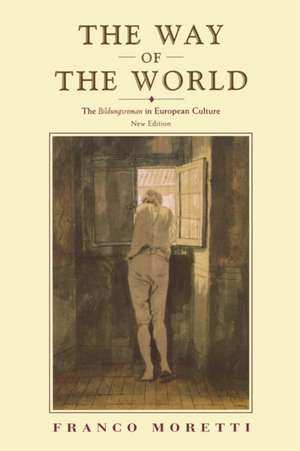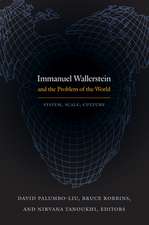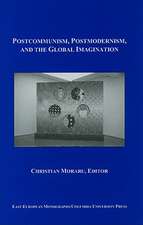The Way of the World: The Bildungsroman in European Culture
Autor Franco Moretti Traducere de Albert Sbragiaen Limba Engleză Paperback – 31 aug 2000
The Way of the World, with its unique combination of narrative theory and social history, interprets the Bildungsroman as the great cultural mediator of nineteenth-century Europe: a form which explores the many strange compromises between revolution and restoration, economic take-off and aesthetic pleasure, individual autonomy and social normality. This new edition includes an additional final chapter on the collapse of the Bildungsroman in the years around the First World War (a crisis which opened the way for modernist experiments), and a new preface in which the author looks back at The Way of the World in the light of his more recent work.
Preț: 172.18 lei
Nou
Puncte Express: 258
Preț estimativ în valută:
32.95€ • 35.78$ • 27.68£
32.95€ • 35.78$ • 27.68£
Carte disponibilă
Livrare economică 01-15 aprilie
Preluare comenzi: 021 569.72.76
Specificații
ISBN-13: 9781859842980
ISBN-10: 1859842984
Pagini: 274
Dimensiuni: 154 x 234 x 22 mm
Greutate: 0.45 kg
Ediția:New.
Editura: VERSO
ISBN-10: 1859842984
Pagini: 274
Dimensiuni: 154 x 234 x 22 mm
Greutate: 0.45 kg
Ediția:New.
Editura: VERSO
Notă biografică
Franco Moretti teaches English and Comparative Literature at Columbia University. He is the author of Signs Taken for Wonders, The Way of the World and Modern Epic, all from Verso.
Recenzii
“A short, brilliant, provocative and often entertainingly upbeat book.”—New Society
“A pointed example of the nature of youth, as represented in the novels of Austen, Balzac, Dickens, Eliot, Flaubert, Goethe and Stendhal ... [Moretti] is undoubtedly a brilliant and searching critic.”—Independent
“A pointed example of the nature of youth, as represented in the novels of Austen, Balzac, Dickens, Eliot, Flaubert, Goethe and Stendhal ... [Moretti] is undoubtedly a brilliant and searching critic.”—Independent






















